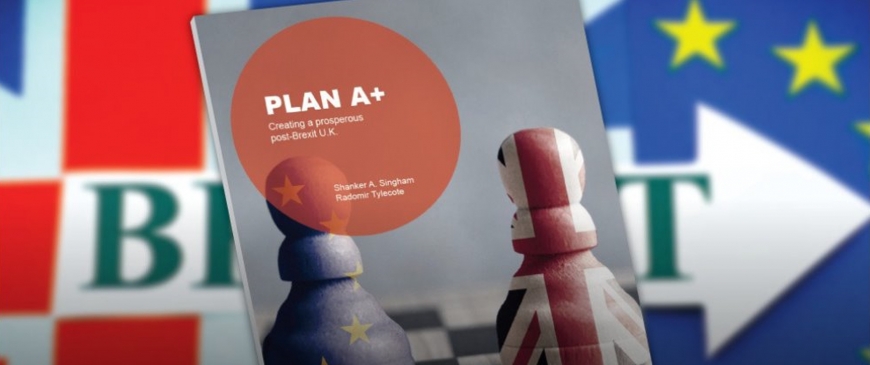
Jacob Rees-Mogg and fellow Brexiteers' latest trade proposals, fact-checked
The past weeks have seen the publication of a stream of reports making the case for a harder Brexit. The most recent, published today by the Institute for Economic Affairs, treads familiar territory: it argues that the UK’s ability to strike new trade deals with the US, India and others and ability to (de)regulate its economy must be prioritised over the UK’s existing trade relationship with its most important trading partner, the EU.
I say familiar territory because it is nothing new. Variations of this argument have permeated the pro-Brexit discourse since day one. Indeed, it is the Brexiter compulsion to sign new free trade agreements that led Theresa May and her Government to twist themselves into knots and propose a facilitated customs arrangement that would grant the UK all the benefits of a customs union with none of its downside. A proposal the EU was always going to reject.
Yet, despite all of the noise, no-one has yet provided solid evidence to justify the core assertion: that rejecting a close relationship with the trade and regulatory superpower on our doorstep in favour of unpredictable bounty further afield is in the economic interest of the UK, contrary to mainstream economists’ – and indeed the Government’s – assessments.
This is not to say that no one has tried, it is rather that the attempts have failed to convince and have relied upon highly questionable assumptions such as assuming that even in the event of a no-deal Brexit, no new regulatory barriers to trade would emerge.
Perhaps naïvely, my hope was that this time would be different.
What the report gets right
The report claims, rightly, the economic projections of the future are imprecise and a product of assumptions made by their authors.
It argues that Whitehall’s estimations of the negative impacts of Brexit – at the top end 7.7 per cent smaller than the UK would have been otherwise – have been exaggerated by both over-estimating the impact of higher trade barriers with the EU, and underestimating the impact of new free trade agreements with the rest of the world, especially if complimented by deregulation at home.
This is an interesting perspective, but there is little in the way of evidence to substantiate it.
Contrary to the IEA’s assertions, Whitehall estimates of post-Brexit non-tariff barriers to trade appear reasonable (indeed they assume that they will be naturally slightly lower than usual due to the UK’s starting position being one of convergence) and their forecasts of the impact of future trade deals on UK GDP match up with the literature. For example, the Whitehall estimate that a trade deal with the US would increase UK GDP, at the upper-end, by 0.3 per cent is similar to a previous European Commission forecast on TTIP. The Commission found an EU-US trade deal which removed 100 per cent of tariffs and 25 per cent (higher in some areas) of non-tariff barriers would leave the UK 0.35 per cent richer.
Of course, governments, and modellers do get these things wrong all the time. Yet the example given of New Zealand’s forecasters failing to predict just how beneficial a free trade agreement with the massive regional economy (China) ended up being perhaps doesn’t make the point they think it does.
Of the eight pages dedicated to criticising gloomy assessments of Brexit’s economic impact, only eight lines and a missing footnote are dedicated to their own estimates. They state that a 30 per cent reduction in regulations they don’t like, in a basket of countries, could increase the GDP of the US, UK, Australia, Japan and others by up to 7.25 per cent in the long-run, somehow.
The missing footnote
Unfortunately, at the time of reading, the footnote presumably containing the methodology is missing. Presumably it is based on the same analysis that has been criticised for sitting on assumptions that are “odd or indefensible”.
It is unclear throughout the paper why they think the UK will be able to drive such a global shift towards ‘pro-competitiveness’, especially when, as they acknowledge, it is the EU which, due to the size of its market, has had the most success exporting its regulatory approaches globally. Equally, assuming the UK were to achieve such an objective, they fail to adequately consider the impact such diversion from the rules of the EU would inevitably have on the existing levels of trade.
The report confidently asserts that “given that there is ample evidence that the potential gains to the world are significant” from Britain’s championing of free trade, “it is the UK’s independent trade and regulatory policy that must be preserved …”
I am willing to allow for the possibility that such “ample evidence” does exist, but I am left wondering, yet again, why, if that is so, so little made its way into the report.
Sam Lowe is a senior research fellow at the Centre for European Reform.
